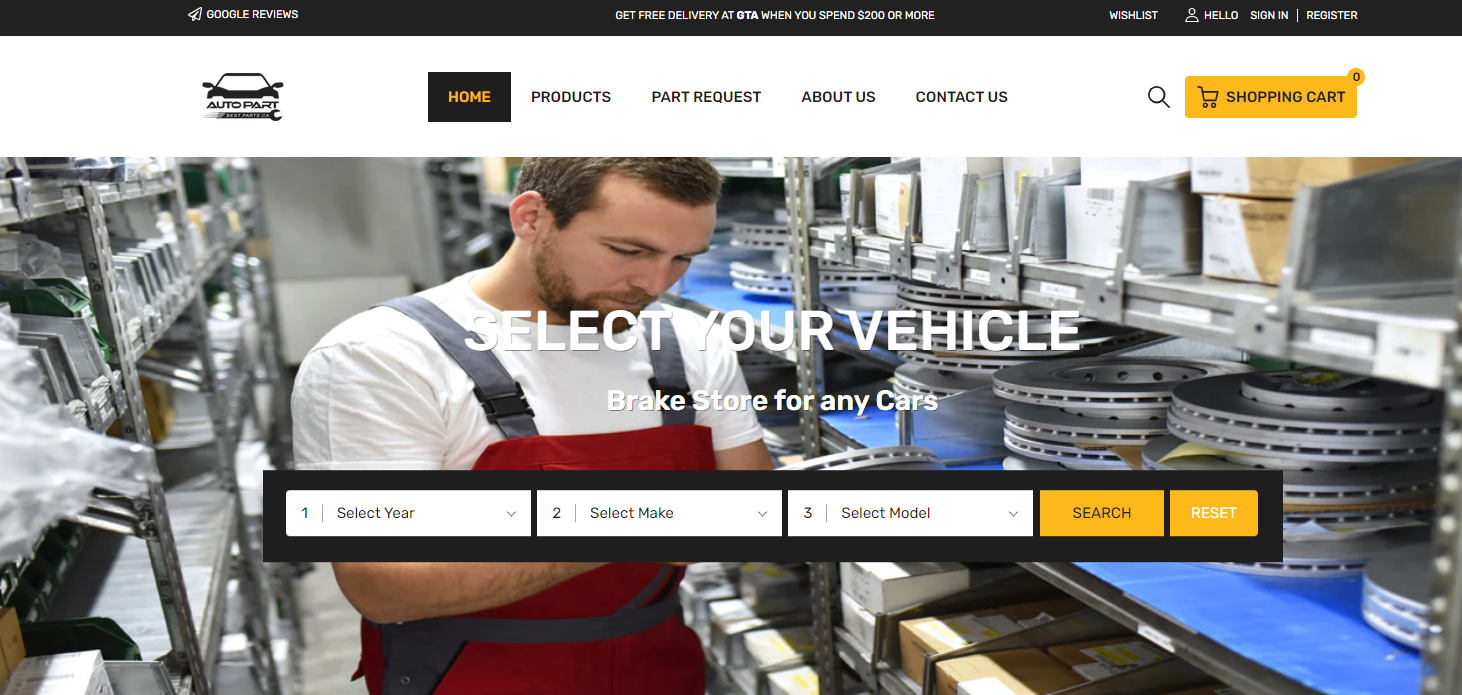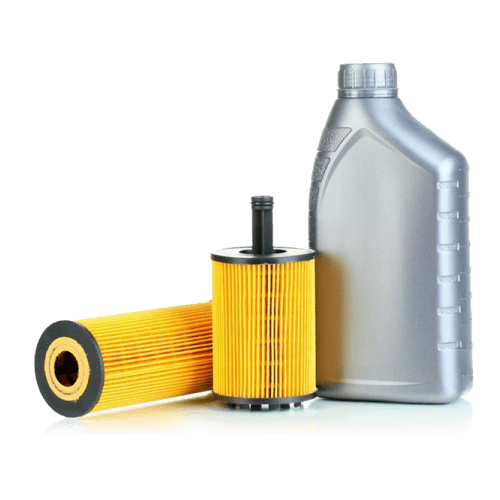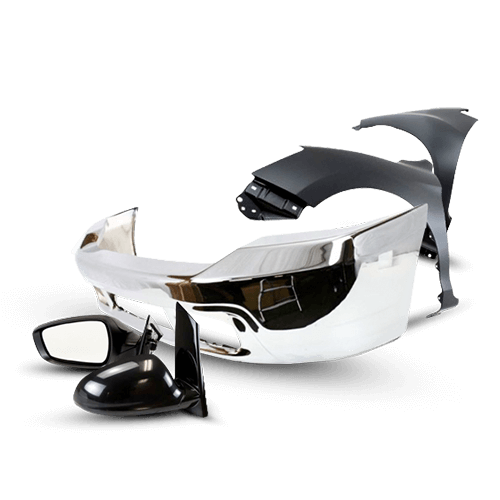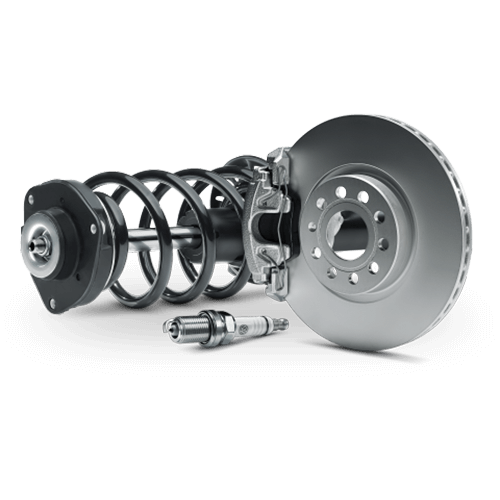
Several important reasons to replace the brake pads
Maintaining your vehicle's performance requires paying close attention to its various components. Among these, the role of brake pads stands out as an important component of the braking system. While their role in providing a safe driving experience is undeniable, understanding the key reasons to replace brake pads is equally crucial.
In this article from the Bestparts website, we'll delve into the intricacies of brake pads, exploring the signs that indicate it's time for a "replace the brake pads" procedure and addressing common questions regarding their lifespan and maintenance.

What are Brake Pads?
Brake pads are an essential component of your vehicle's braking system, responsible for creating the necessary friction to slow or stop your vehicle. They are made of a friction material that is bonded to a metal backing plate and play an important role in ensuring that your vehicle responds quickly to your stop commands.
Understanding their composition, function, and the importance of regular maintenance empowers vehicle owners to ensure a reliable braking system, enhancing overall driving safety.
read more: How to tell if sway bar link is bad?

Important Reasons to Replace the Brake Pads
Brake pads constitute a vital element within your vehicle's brakes system, strategically positioned between the brake caliper and the brake rotor. Functioning as friction-inducing agents, they play a pivotal role in converting kinetic energy into heat, facilitating the essential process of slowing down your vehicle. As we delve into the following sections, it becomes evident why it's crucial to understand the Important Reasons to Replace the Brake Pads
1. The Sound of the Brakes
One of the early warning signs that your brake pads are approaching the end of their life is the emergence of unusual sounds during braking. If you hear a high-pitched squeal or grinding noise, it's an indication that your brake pads are wearing thin and need immediate attention to prevent further damage.
2. Noise When Braking
A persistent squealing or grinding noise during braking is a clear signal that your brake pads have surpassed their optimal thickness. Ignoring this auditory cue could lead to more significant issues, compromising both your safety and the efficiency of your braking system.
3. Vibration When Braking
Feeling vibrations through the brake pedal is another warning sign that your brake pads are not in their prime condition. Uneven wear on the pads can lead to a loss of braking efficiency and should be addressed promptly to ensure a smooth and safe driving experience.
4. Taking Longer To Stop
If you notice an increase in your vehicle's stopping distance, it's time to consider the state of your brake pads. Worn-out pads compromise the braking system's ability to generate sufficient friction, resulting in longer stopping distances and an increased risk of accidents.
5. The Brake Pad Indicator Light Turns On
Modern vehicles are equipped with a brake pad wear indicator that illuminates on your dashboard when the pads are nearing the end of their life. Disregarding this warning light is not an option if you value your safety and the reliability of your braking system.
6. Brake Pads Appear To Be Thin
Visual inspection is a powerful diagnostic tool. If, upon inspection, your brake pads appear excessively thin, it's a clear indication that replacement is overdue. Addressing this promptly is essential to prevent further damage to your vehicle's braking components.

How Long is the Life of Brake Pads?
Determining the lifespan of brake pads is contingent upon several factors, making it a variable aspect in vehicle maintenance. On average, brake pads can last anywhere from 30,000 to 70,000 miles. However, this estimation can be influenced by driving habits, road conditions, and the type of brake pads installed.
Factors Affecting Brake Pad Longevity
while the average lifespan of brake pads provides a general guideline, individual driving habits and environmental factors play a crucial role. In following we will explain Factors Affecting Brake Pad Longevity:
1. Driving Habits
Frequent abrupt stops, aggressive driving, and prolonged periods of braking can accelerate brake pad wear. Consistent and smooth driving habits contribute to a longer pad life.
2. Road Conditions
Driving in challenging conditions, such as hilly terrains or areas with heavy traffic, may lead to quicker brake pad deterioration. Dust, debris, and uneven surfaces can impact pad longevity.
3. Brake Pad Material
The type of brake pad material significantly influences its durability. Organic, ceramic, and semi-metallic brake pads each have distinct wear characteristics, affecting their respective lifespans.

Conclusion
Neglecting your brake pads is not an option when it comes to vehicle safety. Regular inspections and replacements ensure that your vehicle stops when needed, preventing accidents and ensuring a smooth driving experience. Finally, don't underestimate the importance of replacing brake pads on time. It is critical for your safety and the safety of others on the road. Make "replace the brake pads" a priority, and your vehicle will appreciate the dependable stopping power!
FAQ
• How often should I replace my brake pads?
It is recommended to replace brake pads every 30,000 to 70,000 miles. However, regular inspections are crucial, and if you notice any warning signs, immediate replacement is advised.
• Why is responsive braking important, and how do worn brake pads affect it?
Responsive braking is crucial for safe driving, especially in emergency situations. Worn brake pads reduce friction, hindering the brake system's ability to stop the vehicle promptly.
• Are there different types of brake pads?
Yes, there are various types of brake pads, including ceramic, semi-metallic, and organic. The best type for your vehicle depends on your driving style and the specific requirements of your car.
• How do I know when it's time to replace my brake pads?
Signs of worn brake pads include squeaking or grinding noises, reduced brake responsiveness, and dashboard warning lights. If you notice any of these indicators, it's time to have your brake pads inspected and replaced.
• How do worn brake pads contribute to noise, and why is noise reduction important?
Worn brake pads often produce irritating noises, such as squeaks or grinds, during braking. Replacing them eliminates these noises, providing a quieter and more comfortable driving experience.
• Can replacing brake pads improve fuel efficiency, and how?
Yes, replacing brake pads can improve fuel efficiency. Worn brake pads create unnecessary drag, and by replacing them, you ensure smoother operation, contributing to better fuel economy.
• Are there different types of brake pad materials, and how do they impact longevity?
Yes, brake pads come in various materials such as organic, ceramic, and semi-metallic. Each material has different wear characteristics, impacting the longevity of the brake pads.























































